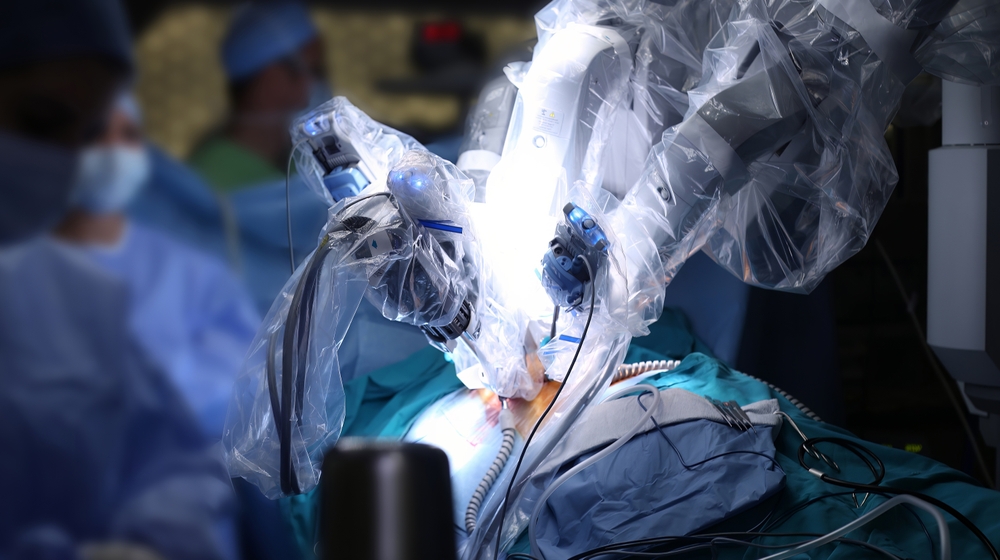
4 Reasons to Consider Uro-oncology for Early Detection & Treatment of Urological Cancers
Bladder cancer is one type of urological cancer that, if left undiagnosed and untreated, can pose a major health risk. Uro-oncology is a field of medicine that focuses on urological cancer diagnosis and therapy. Uro-oncology provides a holistic approach to treating urological tumors with specialist knowledge, cutting-edge diagnostic technologies, personalized treatment strategies, and access to clinical trials and offers the greatest care for bladder tumors. According to the American Cancer Society's projections, there will be an estimated 82,290 new bladder cancer cases (about 62,420 in men and 19,870 in women) in 2023.
In this post, we'll examine four factors that make Uro-oncology the best option for the early diagnosis and treatment of urological tumors.
Reason 1: Specialized expertise
It is crucial to have access to expert knowledge to diagnose and treat urological cancers. Uro-oncologists can offer assistance in the detection and treatment of urological malignancies, such as bladder cancer, that have been the focus of the specialized training of these medical professionals.
Bladder cancer causes blood in the urine or other urinary symptoms and is frequently detected early. Hematuria, or blood in the urine, is typically the first indication of bladder cancer.
Regular urologists are less conversant than Uro-oncologists; they understand the complexities of urological malignancies. They are knowledgeable on how to provide patients with the greatest therapies and have access to the latest scientific trials. The benefits of knowledge relevant to Uro-oncology include:
- Customized, tailored treatment plans based on each patient's unique medical needs
- Having access to cutting-edge diagnostic and treatment equipment
- Improved quality of life
- More accurate urological cancer detection and staging
- Better long-term outcomes and higher success rates
- Improved side effect control connected to treatment.
By choosing an Uro-oncologist, patients can feel safe knowing that their care is managed by medical professionals solely focused on treating bladder cancer. With the right training, patients can achieve the best results for their health.
Reason 2: State-of-the-art diagnostic tools
Early cancer detection tests are essential for urological tumors to be successfully treated. Most frequently, intravesical chemotherapy is administered within 24 hours post transurethral resection (TURBT) with fulguration in order to treat this early stage of bladder cancer. Bladder cancer diagnosis and staging in Uro-oncology are done using various diagnostic techniques, such as cystoscopy, biopsies, MRI, CT scan, and PET scan. Modern diagnostic tools have many benefits, including the following:
- Better outcomes may result from earlier intervention and therapy
- Early detection of urological malignancies in their early stages;
- Better patient outcomes and general quality of life
- Improved patient outcomes
- More accurate cancer staging, which helps establish the optimal treatment regimen.
The early cancer detection test can be considerably improved in Uro-oncology by applying cutting-edge diagnostic techniques. Patients can receive precise diagnoses and individualized treatment regimens that are catered to their particular health needs by leveraging advanced technologies.
Reason 3: Tailored treatment plans
There are various urological cancer types, each with special traits and available therapies. Patients in Uro-oncology benefit from the experience of medical specialists who are knowledgeable about the complexities of the bladder tumor and can create individualized treatment regimens that take into account the needs of each patient.
Uro-oncologists develop personalized treatment plans in collaboration with patients based on several variables, such as
- Bladder cancer, stage and kind
- Patient's personal preferences and general health
- Surgery, radiation therapy, chemotherapy, immunotherapy, or a combination of these treatments are all possible as forms of treatment.
Customized care plans are crucial because they give patients the best treatment alternatives for their unique medical requirements. Many urologic malignancies are treated primarily with surgery. The type of surgery may vary depending on the cancer's stage and nature. Most medical professionals will advise a cystoscopy if bladder cancer is suspected. A cystoscope, which is a long, thin, flexible tube with a light and lens or a tiny camera on end, is used by urologists.
Another testing, including Genetic testing, molecular profiling, or imaging investigations, are just a few techniques that Uro-oncologists may employ to create individualized treatment strategies for bladder cancer.
These are some instances of how Uro-oncologists create personalized treatment plans:
- Genetic testing detects specific mutations or biomarkers that may help select the best course of treatment for bladder tumors.
- Imaging investigations assess the cancer's extent and plan the surgical strategy.
- Modifying treatment regimens in response to a patient's reaction to therapy
Reason 4: Access to clinical trials
Clinical trials are crucial to developing new cancer treatments and diagnosis. They evaluate the efficacy and safety of novel therapies, procedures, and treatments. Clinical trials in Uro-oncology give patients access to the newest therapies and innovations that may enhance their outcomes and possibly result in novel cancer treatment breakthroughs. By assisting patients in comprehending the advantages and hazards of involvement in clinical trials, Uro-oncologists play a critical role in these studies. Patients can access clinical studies that might not be accessible elsewhere by engaging with a Uro-oncologist.
The following benefits come with participating in clinical trials through Uro-oncology:
- Access to state-of-the-art therapies and treatments that may not be available elsewhere;
- Close monitoring of patient health and safety throughout the trial;
- Possibility of improved outcomes and increased survival rates;
- Possibility to contribute to the advancement of medical research;
- Availability of expert medical guidance and support throughout the clinical trial process.
Conclusion
Uro-oncology offers specialized expertise, state-of-the-art diagnostic tools, tailored treatment plans, and access to clinical trials, making it a critical field for early cancer detection and treatment. Consider Medanta’s Uro-oncology department to benefit from customized treatment plans that utilize the latest medical technologies and clinical research for cancer diagnosis. Seek out a qualified Uro-oncologist Dr. ABCD for your urological cancer treatment. Don't wait; prioritize your health today and schedule a consultation with a Uro-oncologist unit to receive the best possible care.






